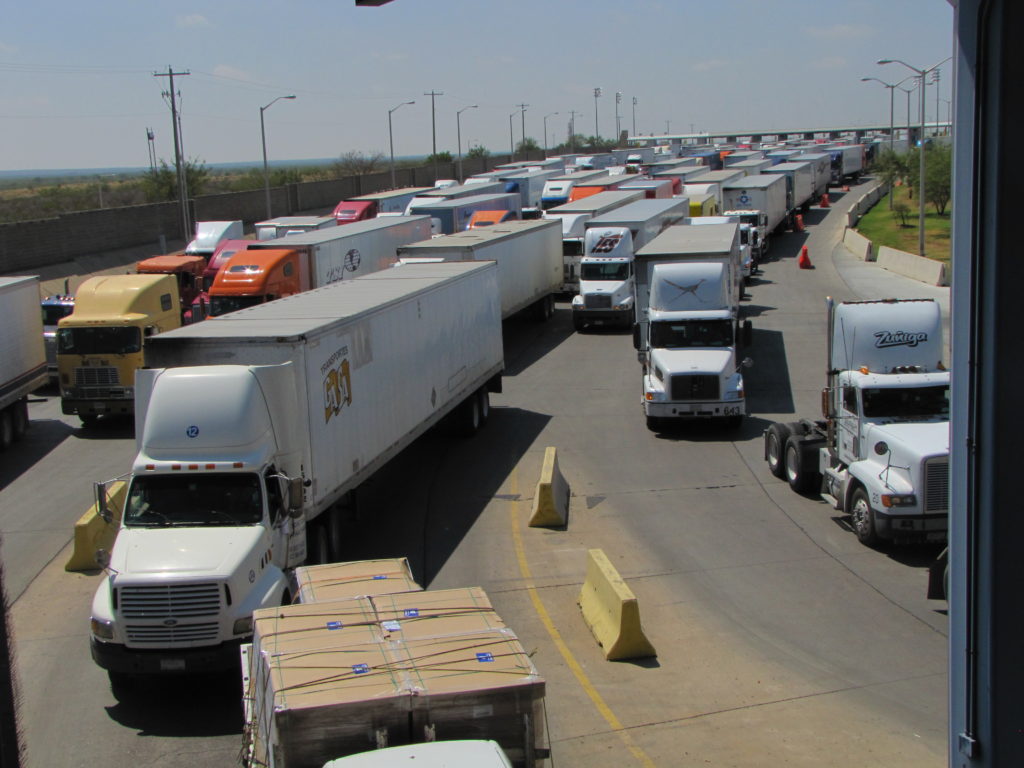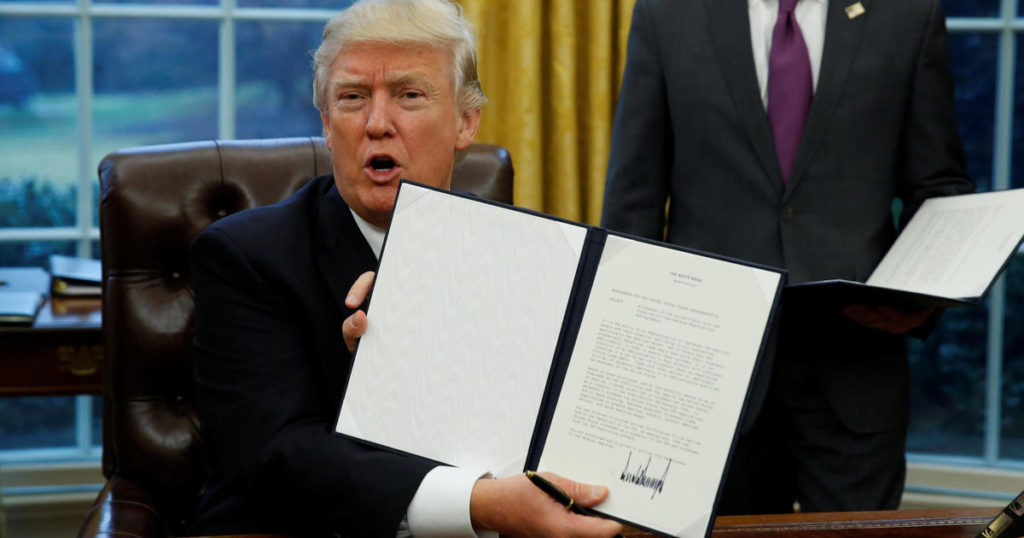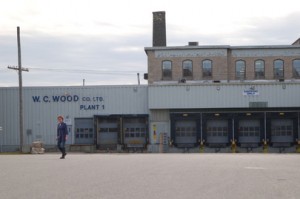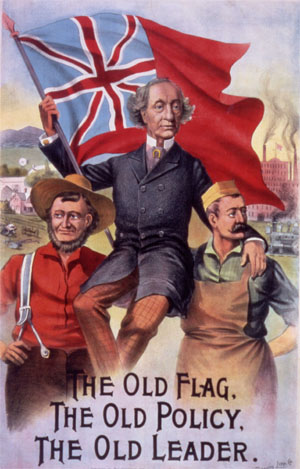 By Ray Rivers
By Ray Rivers
June 30th, 2018
BURLINGTON, ON
“Overall, NAFTA was neither devastating nor transformational for Canada’s economy. Opponents of the 1988 free trade agreement had warned that Canada would become a glorified 51st state. While that didn’t happen, Canada didn’t close the productivity gap with the US either…” (NAFTA’s Winners and Losers by David Floyd Jan 30, 2018 – Investopedia)
And that is perhaps because NAFTA has always been a free trade agreement in name only. You see that every time you cross the border and some official asks you if you have something to declare. Try ordering something on-line from a US supplier and you’ll find yourself waiting a long time until the customs have been cleared and after you’ve paid the duty.
And while NAFTA is supposed to include services as well as goods, there is no free trade in labour services – you can’t just waltz across the border and get a job there. NAFTA and its Can-US ‘free trade’ predecessor were implemented to assist large corporations enhance their profitability, particularly in the auto sector which needed to update the 1960’s auto-pact.
And over the last twenty five years NAFTA has benefited consumers with lower prices on a good number of items and some services. But like every good economic idea, NAFTA has had consequences on Canada.

Rivers does make a strong point about how much damage those trucks do as they move parts and produce across the border.
One we almost never hear about is transportation and the environment. The auto industry likes to brag about how often an automobile crosses the border before its final assembly and sale. That crossing is accomplished mostly by trucks rushing to fulfil their just-in-time assembly line orders, zig-zagging half way across the continent.
So there is all this truck congestion at the borders and all around us on our highways. Transportation is inherent in the definition of freer trade. Trucks, trains and ships move goods and components across even greater distances. And these vessels all use fossil fuels to operate. So the biggest casualty of free trade is the environment and how we are accelerating global climate change.
More congestion translates into gridlock – more time for the daily commute and the immeasurable costs of lost family play time. Then there is the added noise and that smog inducing pollution. There is danger in sharing road space with those massive speeding trucks. And of course there is the cost of road bed maintenance and highway reconstruction – and the inconvenience of it all.

President Trump seems to have to show off his signing of Executive Orders. Raw political power on display.
It’s not that Canada wants to tear up NAFTA but Mr. Trump does, and he’s going to do it. In any case, there won’t be much left after softwood, aircraft, metals and autos – his next target. When the Canada-US free trade deal first got off the ground there was a huge sucking sound as manufacturing jobs and incomes headed down to the US. Companies decided they could still sell to Canadian customers duty-free while being better located for the much greater US market.
Ontario and Quebec were particularly hard hit, but we adjusted and we’ll adjust again once Trump has rendered NAFTA into the dust bin of history. And that could be as soon as he announces his upcoming tariffs on autos.
Toyota estimates a 25% auto tariff will push up the cost of a Camry – currently the most popular car in the US, and built there – by $1800 for its US customers. And as Toyota goes so goes the rest of the industry. But that simple reality hasn’t deterred Mr. Wreck-it Ralph in the White House from his path of destruction.
And autos? They’re changing. The electric vehicle is simpler to manufacture, not needing the complication of the myriad of devices used with gas engines to help detoxify car emissions. And batteries which last a minimum of eight years have eliminated the need for a dealer network to service the vehicles once they leave the showroom – no more oil changes.
That means it should be a lot easier for new entrants to get into the auto industry – who needs the big three anymore and their integrated vehicle assembly plants anyway. Those corporations are yesterday’s business model. They need to move over for a new breed of smaller auto manufacturers who sell the products on-line or in shopping malls and Costco. Is there a Canadian entrepreneur, our own Tesla inventor, up to the challenge?

The factory that manufactured the first Rivers family freezer.
My parents bought their first food freezer from the Guelph appliance company W.C. Wood Co. Ltd.. It lasted for over forty years without a breakdown. Mr. Wood recounts that…“In 1964 37 Canadian companies manufactured washing machines, stoves and refrigerators. Today, there are four. Workers in the industry used to total 10,000. Now, there are 2,500… By next year, Mr. Wood said, he’ll be looking at just three manufacturers (here).” Try to get 40 years out of one of the US built models today.
And what is Trump talking about. Canada has an overall trade deficit in the billions with the US, although we have a surplus on goods. But that is mostly our export of crude oil, and we all know where that will be going as fractured drilling is making America more oil independent every year. Sure manufacturing and manufacturing jobs are declining in the US for a number of reasons, including automation. But they are declining even faster in Canada – we’re not gaining at America’s expense.
And why didn’t someone tell the Donald that Canada actually buys more steel from the US than it sells – $2.1 billion more. And we buy more military hardware from the US than anywhere else in the world – over a billion a year on average. We pay more for our pharmaceuticals and intellectual goods because we have conformed to US rules on patents and copyrights.

Is this the direction Canada is going in? Is t the direction we have to go in?
We’ll survive as we did for over a century before NAFTA or the Mulroney deal. And Trudeau is right – we’re not going to be pushed around. Canadians have got the message – we love our American neighbours but there is a trade war and we need to defend ourselves. So a lot of us are responding the best way we can. We have stopped buying US gods and services, even if that means buying Chinese.
I noticed the last few times shopping in the liquor store that people were asking more and more about alternatives to US wines. That should be our next target in this ever growing trade dispute with the US. I’d rather drink Ontario or B.C. fine wines anyway.
But I rarely see the B.C. wines in the LCBO. Perhaps that is where we need to make sure free trade is really working – right here across Canada. After all we are on the eve of Canada Day – more important for us now than ever.
 Ray Rivers writes regularly on both federal and provincial politics, applying his more than 25 years as a federal bureaucrat to his thinking. Rivers was once a candidate for provincial office in Burlington. He was the founder of the Burlington citizen committee on sustainability at a time when climate warming was a hotly debated subject. Tweet @rayzrivers
Ray Rivers writes regularly on both federal and provincial politics, applying his more than 25 years as a federal bureaucrat to his thinking. Rivers was once a candidate for provincial office in Burlington. He was the founder of the Burlington citizen committee on sustainability at a time when climate warming was a hotly debated subject. Tweet @rayzrivers
Background links:
NA Free Trade – Manufacturing Decline – Tariffs Hurt –



















Interesting summary Ray!
Trump’s erratic leadership has created major schisms with not just Canada but several other international allies. The man is seriously delusional, and despite claims of business acumen he has little understanding of international trade. He is isolating the United States, and its influence in global affairs and trade will likely diminish significantly to be replaced by Russia or China.
We do need to better promote not just Canadian manufacturing, but also, purchasing Canadian products. More broadly, we need to need to shift our reliance on the U.S. by forging substantive trading alliances with countries who, like us, value democratic ideals, human rights, equality, decent compensation and environmental sustainability. That means N.Z., Australia, England, Iceland, Norway, Sweden, Finland, and Denmark, and fledgling democracies such as Costa Rica and Rwanda. It does not mean Mexico and China. One is run by drug lords, the other by industrial fascists.
BTW…agree with you totally about Woods products. I had a Woods freezer that finally died last year after 25 years of dependable service. The piece of junk I replaced it with likely won’t last 5 years. I’m still hanging on with pride to my 29 year old Canadian made Inglis dryer and my 32 year old Canadian made Kenmore. Dreading the day I will have to replace them.
Great write-up Ray. Canadian made goods need to have stronger public ads and priced comparably with the imports that are right next to them. We have researched vehicles in Florida that are assembled here in Ontario and the prices are cheaper in Florida than what we can buy here at home. Likewise for the B.C. wines that you mentioned, and local fruit, vegetables, etc. that we often don’t see in our super markets, and if we do, they are cheaper to purchase in the States than here. Something seriously wrong with our system! We, Canada, needs to become more self sufficient for survival and not so dependent on others. We do not own anymore: Department Stores, Pharmacies, and a lot of our natural resources have been sold off, so perhaps we may yet become a 51st State?? Too much money spent abroad and not enough on our home soil!